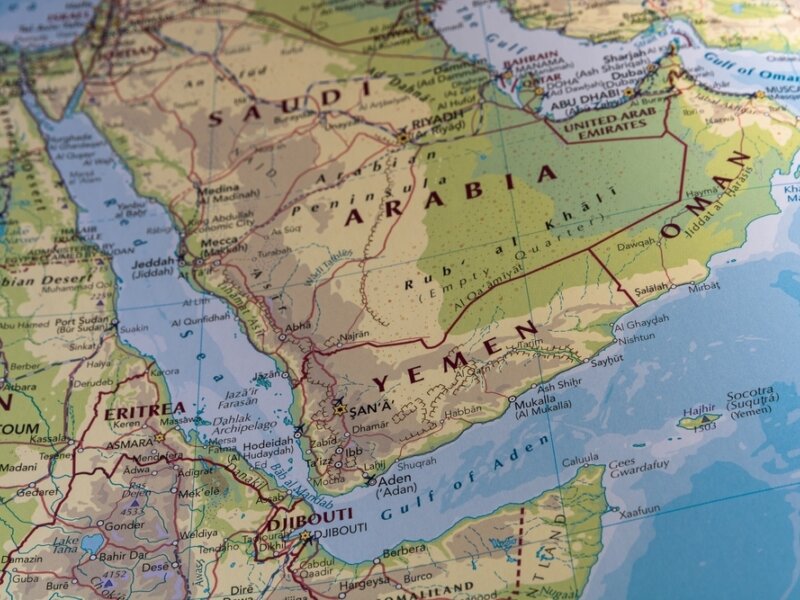Yemen: are talks resuming after the Riyadh Agreement?
Following talks between Yemeni factions in Riyadh, the first important steps have been taken to get things moving again in the country. A look at the role of Saudi Arabia’s support in reaching an agreement.

After a week of talks between the Yemeni warring factions hosted by the Gulf Cooperation Council in Riyadh, Saudi Arabia, President Abdo Rabo Manosur Hadi announced that he would hand over his powers to a new Presidential Council with the aim of removing the obstacles that have hindered cooperation between anti-Houthi forces so far. Announced in a live TV broadcast from Riyadh, concomitantly to the unexpected two-month truce that came into force on 3 April, the decision could represent a turning point in the civil war that has been devastating Yemen for eight years, and could pave the way for possible negotiations between warring parties. The new Presidential Council will be led by Rashad al-Alimi, a respected cabinet member with excellent relations with Saudi Arabia, the United States and the Al-Islah Islamist Party. Members will include Aidarous al-Zubaidi, leader of the Southern Transitional Council (STC) – the southern separatist group supported by the United Arab Emirates – as well as the governor of Marib Province, Sheikh Sultan al-Aradah, and Tariq Saleh, nephew of the late President and leader of the pro-government militias. In addition, Hadi would reportedly dismiss his controversial Vice President, Ali Mohsen al-Ahmar, who is unpopular within the Houthi faction because of his role in the military campaign in the north of the country and in the clampdown on separatists headed by al-Zubaidi during the 1994 civil war.
At the end of the day, the stepping down of Hadi, the truce between warring parties, the reopening of commercial flights from Sana’a Airport, the resumption of fuel shipments from the port of Hudaydah and the possibility of addressing again the problem of the city of Taiz, whose residents have been suffering for years due to a siege and which continues to remain largely blocked, represent very significant steps forward since the 2018 Stockholm Agreement.
The mediating role played in these last few weeks by Saudi Arabia has turned out to be a key element, since the country has been engaged in the war alongside Hadi since 2015. Riyadh wants to put an end to the conflict, not only for national security reasons, but also for a question of image, to show the international community that it is working in good faith for a political solution. After years of inconclusive military operations and under the pressure of missile strikes along its borders, the Saudis have acknowledged the need to foster a largely inclusive institutional framework in Yemen to create a better balanced and more compact front that can finally isolate the Shia rebels. Should the Council succeed in consolidating its authority and unity, the Houthis would find greater difficulties in pitting their enemies against each other by leveraging their internal divisions.
It would be something new, with the potential to facilitate a negotiation with greater chances of success compared to the past, as the new Yemeni Cabinet would sit at the negotiating table from a position of strength. The Houthis’ refusal to participate in the Riyadh meeting, paradoxically, favored the establishment of the Presidential Council.
Many thought that their absence would render the meeting meaningless. Conversely, it turned what would have probably ended up being a sterile attempt at an all-inclusive political negotiation into an opportunity for participating factions to reach a compromise amongst themselves.
Likewise, it is impossible to ignore the fact that the new Presidential Council will have to tackle the very same difficulties that arose following the 2019 Riyadh Agreement – an accord that could have led to a settlement between the Southern Transitional Council and Hadi’s cabinet through the appointment of new ministers and the inclusion of members of the militias in the Yemeni armed forces. Indeed, the inclusion of al-Zubaidi and al-Aradah raises doubts, not only on the autonomy of President al-Alimi but also on the possibility of the new Presidential Council to turn into an arena disputed by rivals pursuing different agendas.
To facilitate the achievement of an agreement, the Kingdom of Saudi Arabia promised US$3 billion in financial aid, to be used to provide liquidity to Yemeni banks, stabilize the local currency and improve the country’s economic conditions through the purchase of oil products. The aid will be phased as follows: a first tranche of financial assistance worth US$2 billion (provided jointly with the United Arab Emirates) will be transferred to the Central Bank of Aden; and a second tranche worth US$1 billion divided as follows: US$600 million for the purchase of oil derivatives, and US$400 million for development projects. On top of this, the Kingdom would commit an additional US$300 million to finance the United Nations humanitarian response plan, already announced a few months ago.
In the face of these important developments, the spokesperson of the Houthis, Mohammed Abdul Salam, said that the rebels will continue their “battle for national liberation”. Despite the rhetoric and the propaganda, the group’s intentions remain unclear. After a stalemate in military operations in the first months of 2022, the Houthis could have perceived the truce as an opportunity to reorganise, bolster people mobilisation and re-equip themselves for a new military offensive after the celebration of ʿīd al-fiṭr, at the end of Ramadan.



